3 Keys to Overcoming Email Overload - Part 5: Lack of 'think time'
This is the 7th in a series of blog posts designed to help you recognise the profound and far-reaching impact email overload has in your life and to offer solutions to help you overcome the challenges it presents.
There are 7 Critical Impacts of Information & Email Overload (get the free Special Report here)
Impact #5: Lack of think time
One of the by-products of information overload is the lack of ‘quiet’ time available for planning, reflecting or being creative. We are now less capable of thinking, generating creative ideas, and effectively solving problems.
Additional research shows a correlation between a fragmented work mode and reduced creativity. As Intel’s white paper puts it, ‘In the past, such “thinking time” was core to the work paradigm. Newton got hit by that apple because he was sitting under a tree’. Sitting and contemplating the world (what we now call “doing nothing”) was an integral and important part of a workplace role.
It seems that we’re accessible at all hours round the clock to beeping, alerting, attention–grabbing devices and software tools and that we’re expected to respond to them instantly. It seems that our technology channels our thinking towards multiple, mostly trivial problems instead of focusing on a few important ones where we can create real value.
This reduced ability to reflect on problems on a regular basis and in large blocks of time exacerbates the reduction in mental capacity described previously.
In an article in The Atlantic magazine, Nicholas Carr asks: “Is Google making us stupid?” Carr, a chronic distracted like the rest of us, noticed that he was finding it increasingly difficult to immerse himself in a book or a long article – “The deep reading that used to come naturally has become a struggle.” Instead, he now Googles his way through life, scanning and skimming but not pausing to think or absorb information. He feels himself being hollowed out by
“The replacement of complex inner density with a new kind of self – evolving under the pressure of information overload and the technology of the ‘instantly available”.
So, what can do you about it?
The creative thinking process requires long stretches of uninterrupted time, to study books, articles and online resources, and to process information, sorting it mentally and generating insight. These activities not only take time, but also require deep mental concentration, which builds up slowly and can easily be lost. Research demonstrates that restoring daily segments of continuous “Quiet Time” can have a major effect of increasing productivity in development teams.
Schedule time for thinking tasks – it won’t ‘just happen’; interruptions and distractions (along with the new tasks they bring) will steal any unallocated time.
Generally speaking, it’s easier to talk than to think so try to use mornings (when we have higher levels of energy) for thinking tasks and push back talking tasks like email, meetings and phone calls to the afternoon when energy levels are not as high. Creativity is a thinking task and much easier done with high levels of energy, so morning is better time for this.
Routine meetings, return phone calls and most email can just as easily be handled in the afternoon – you often don’t require lots of energy for these.
The next blog post will look at the impact of organisational dysfunction that occurs as a result of information & email overload
All the best!

